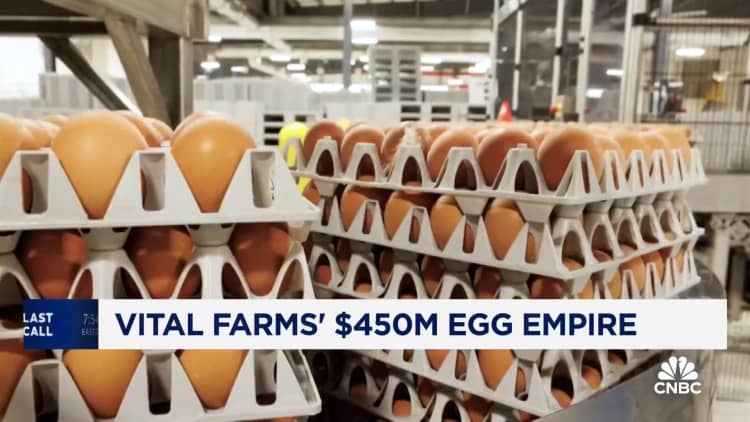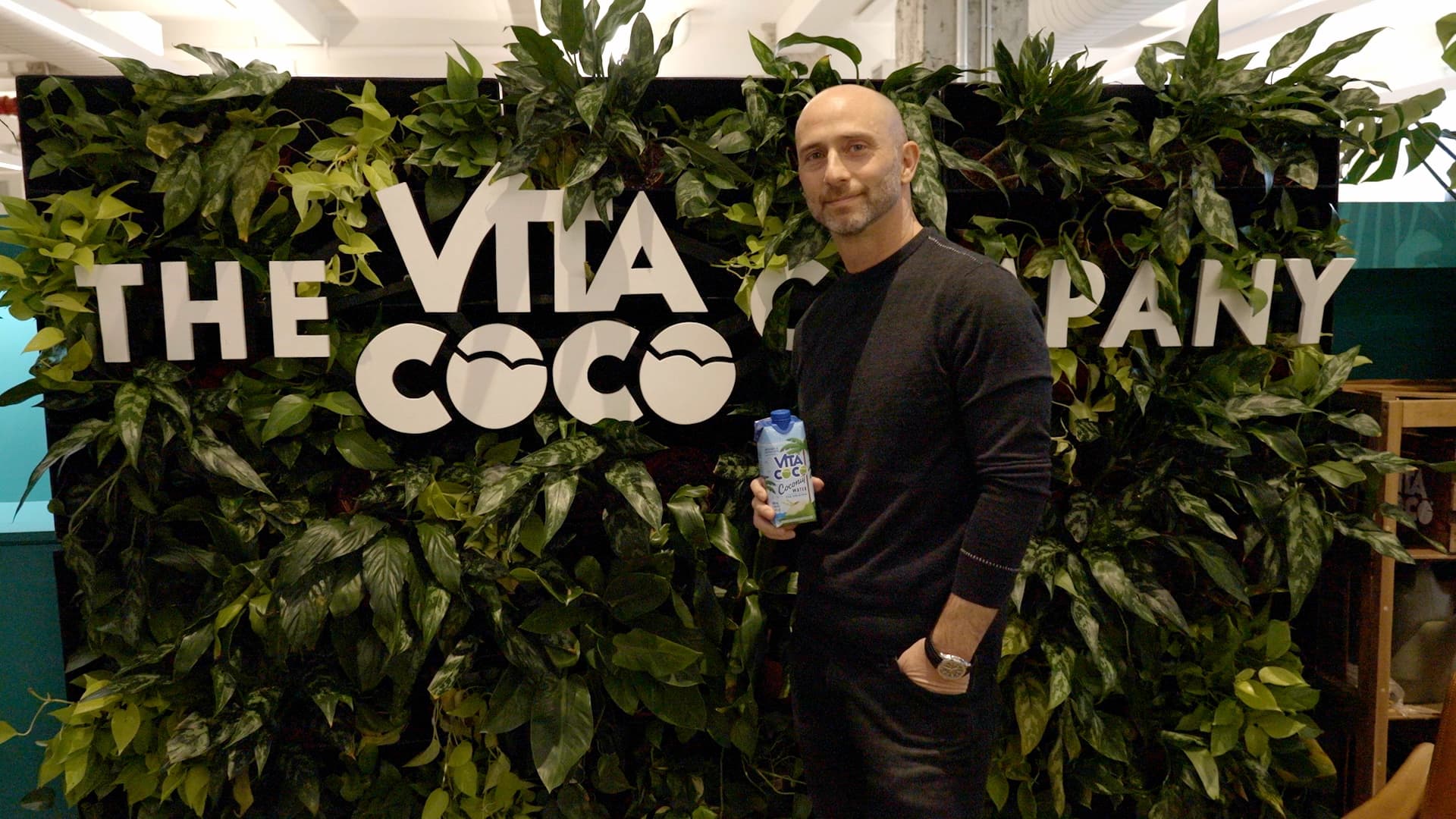Vita Coco started with a leap of faith, a $75,000 investment and “several” maxed-out credit cards.
Today, the bestselling coconut water company is worth $1.1 billion. But it wasn’t born out of a Silicon Valley startup lab. Rather, co-founders Michael Kirban and Ira Liran first thought about going into the coconut water business after a chance meeting in a Manhattan bar on a cold night in 2003, when two Brazilian women told them the beverage was what they missed most about their homeland.
Liran ended up falling in love with one of those women, and moving to Brazil. When Kirban visited them, he realized just how popular coconut water — which has a salty-sweet taste and high levels of hydrating electrolytes — was in the Southern Hemisphere, especially compared to the U.S.
The two friends decided to jump on what they saw as a once-in-a-lifetime opportunity.
“People in Brazil were drinking it for everything,” Kirban, 48, tells CNBC Make It. “They were drinking it at the breakfast table. They were drinking it on the beach. They were drinking it after a workout … We’re like, ‘There’s got to be a consumer in the U.S.'”
Liran and Kirban struck a deal with a supplier in Brazil to produce their first shipment, for $75,000. They paid mostly with Kirban’s money, which he’d obtained by founding and running a real estate software business after dropping out of college. That software business still exists, and Kirban still helps run it on the side, he says.
The shipment got held up at the border by U.S. officials. The co-founders hadn’t realized they needed to register it with the U.S. Food and Drug Administration, which meant they had to divert it to the Bahamas, where Kirban says he “sold it door to door” at bars, grocery stores and even “people’s homes.”
It was only the beginning of Vita Coco’s long journey to financial success, with more stumbling blocks along the way.
‘We started maxing out credit cards’
In the Bahamas, the friends recouped “most” of their money and repeated the process with the proper regulatory registrations, Kirban says. Once Vita Coco hit U.S. shelves, they discovered a nearly identical coconut water brand called Zico, which launched at roughly the same time.
The two companies competed throughout the 2000s for shelf space in stores across New York. The prolonged battle was marked by dirty tactics on both sides, from bombastic marketing and price undercuts to sales representatives removing their rival’s products from store shelves.
At the time, Kirban desperately wanted to avoid taking on too much debt while funding Vita Coco’s early growth, so he developed a credit card strategy not for the faint of heart.
“We started maxing out credit cards … [to] operate the business,” he says, adding: “I would go get a new credit card with no interest for 90 days [or] six months, and just transfer everything to the new credit card. I did that several times.”
The tactic helped Vita Coco avoid business loans, which required immediate repayments with interest, and enabled the co-founders to delay seeking outside investments. That gave them more control of the business and helped them hold onto more of their ownership stakes long-term, says Kirban.
“We never paid any interest and didn’t need to start paying down the credit card until, I don’t know, a year or a year and a half into the business,” he says.
A risky strategy that paid off
Kirban’s strategy was incredibly risky, both personally and professionally. Even if you eventually pay off every card you’ve opened, you can severely damage your credit score, especially if you max out multiple cards, according to experts.
Eventually, Vita Coco did take on outside investors — starting in 2007, when Belgian investment company Verlinvest invested an undisclosed amount. When Zico sold a 20% stake to beverage behemoth Coca-Cola two years later, Kirban found a group of celebrity investors, led by Madonna, and signed a 2010 distribution deal with Keurig Dr. Pepper that still allowed the co-founders to keep a majority stake.
Vita Coco now controls roughly half of the U.S. coconut water market. Zico’s founder later expressed regret over selling the rest of his business to Coca-Cola in 2013, and bought it back in 2021.
Last year, for the first time, Vita Coco cracked more than a billion coconuts to make its signature product — a rate of roughly 3 million per day. Kirban hopes to keep growing his brand across North America, and soon expand into Europe and Asia.
“We see a big opportunity to continue to expand across the globe,” he says.
Want to land your dream job in 2024? Take CNBC’s new online course How to Ace Your Job Interview to learn what hiring managers are really looking for, body language techniques, what to say and not to say, and the best way to talk about pay. Get started today and save 50% with discount code EARLYBIRD.








